The Economic Impact of Immigration on the UK: A Detailed Analysis
VerifiedAdded on 2022/12/29
|9
|660
|88
Report
AI Summary
This report examines the impact of immigration on the UK economy, analyzing various aspects such as GDP, labor supply, and emigration. It begins by providing a background on immigration trends, including net migration data from 1991 to 2015, and discusses the differences between immigration and emigration. The report then delves into the economic effects, highlighting how increased immigration can lead to increased demand and subsequently boost GDP. A literature review is presented, incorporating viewpoints from Tejwan Pettinger and Dr. Alan Renwick, exploring both positive and negative impacts. Pettinger's perspective focuses on the potential negative effects of high immigration on the economy and culture, while Renwick's viewpoint considers the impact on wages and labor markets. The evaluation section synthesizes these viewpoints, acknowledging the complex nature of immigration's economic effects and presenting a balanced analysis. The report concludes with a list of references, providing a basis for further research and understanding of the subject.
1 out of 9
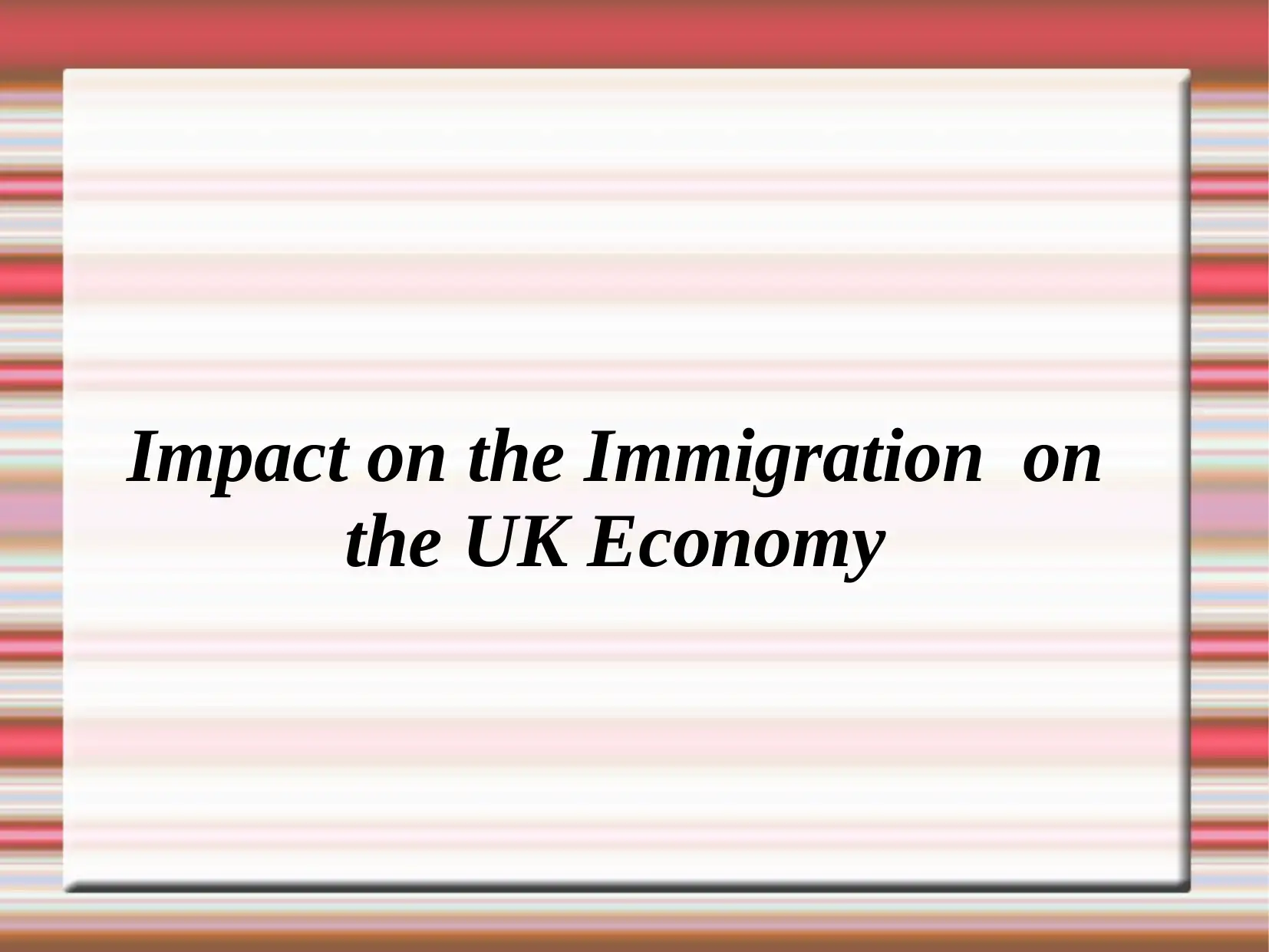
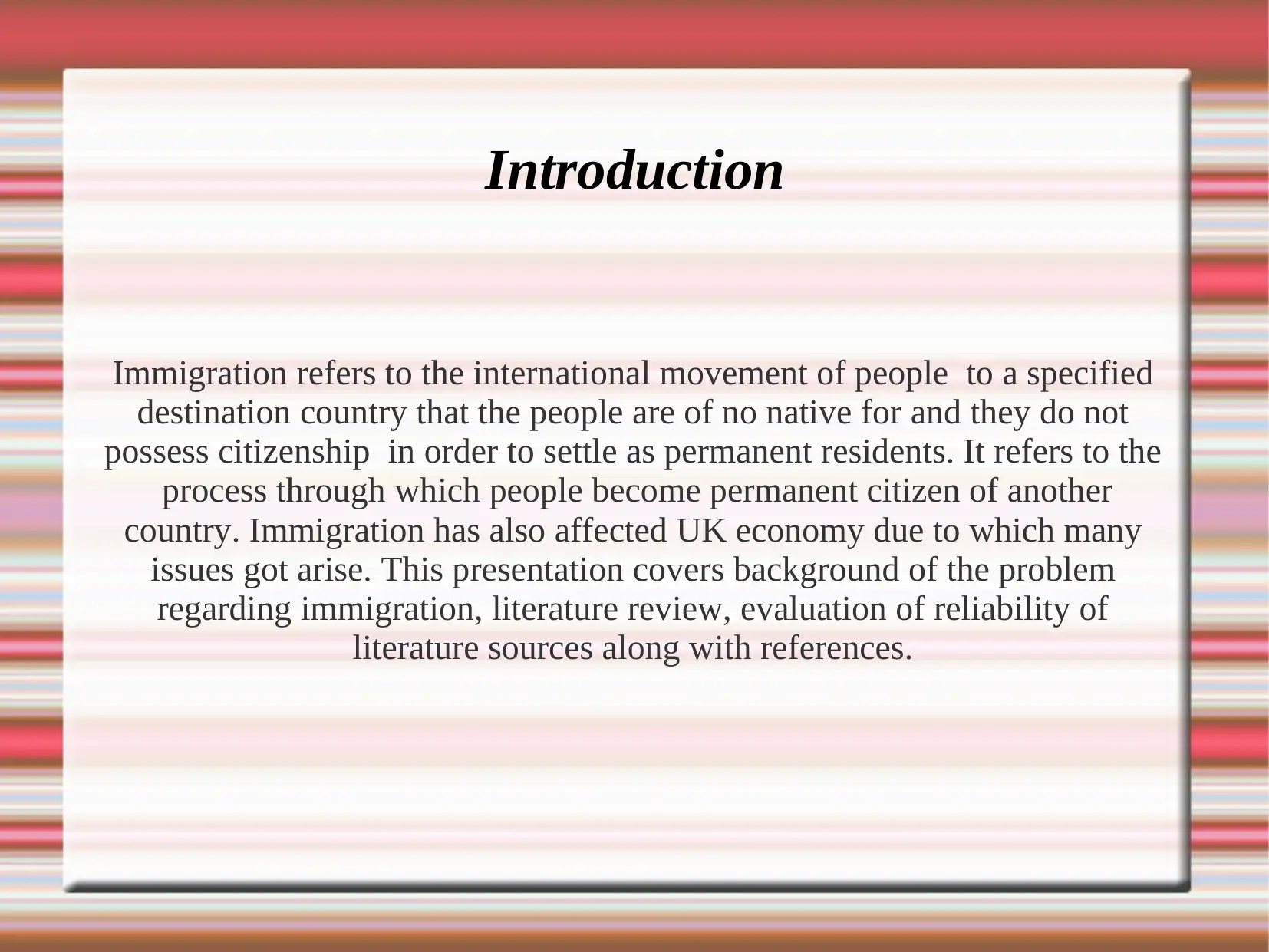
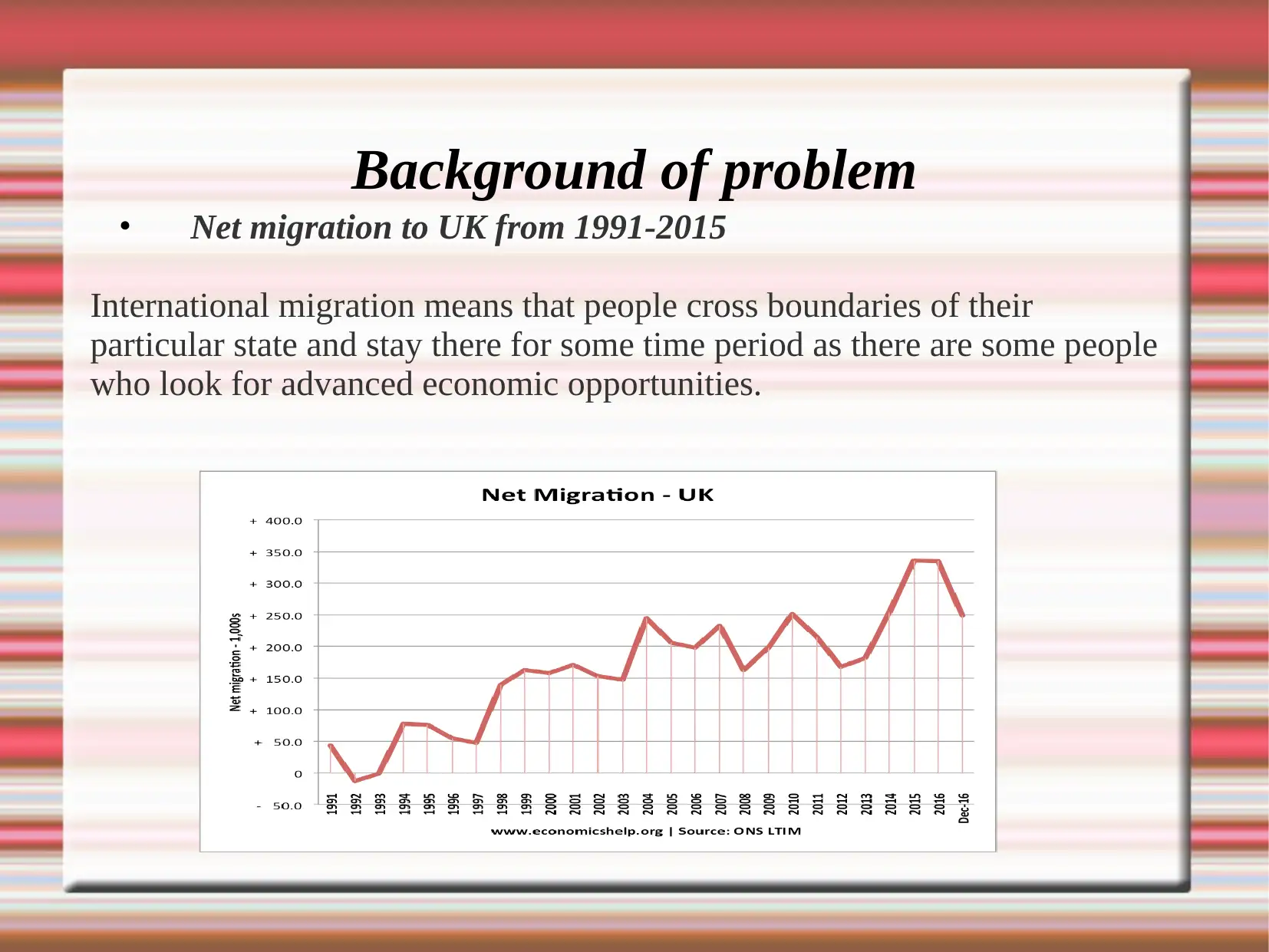

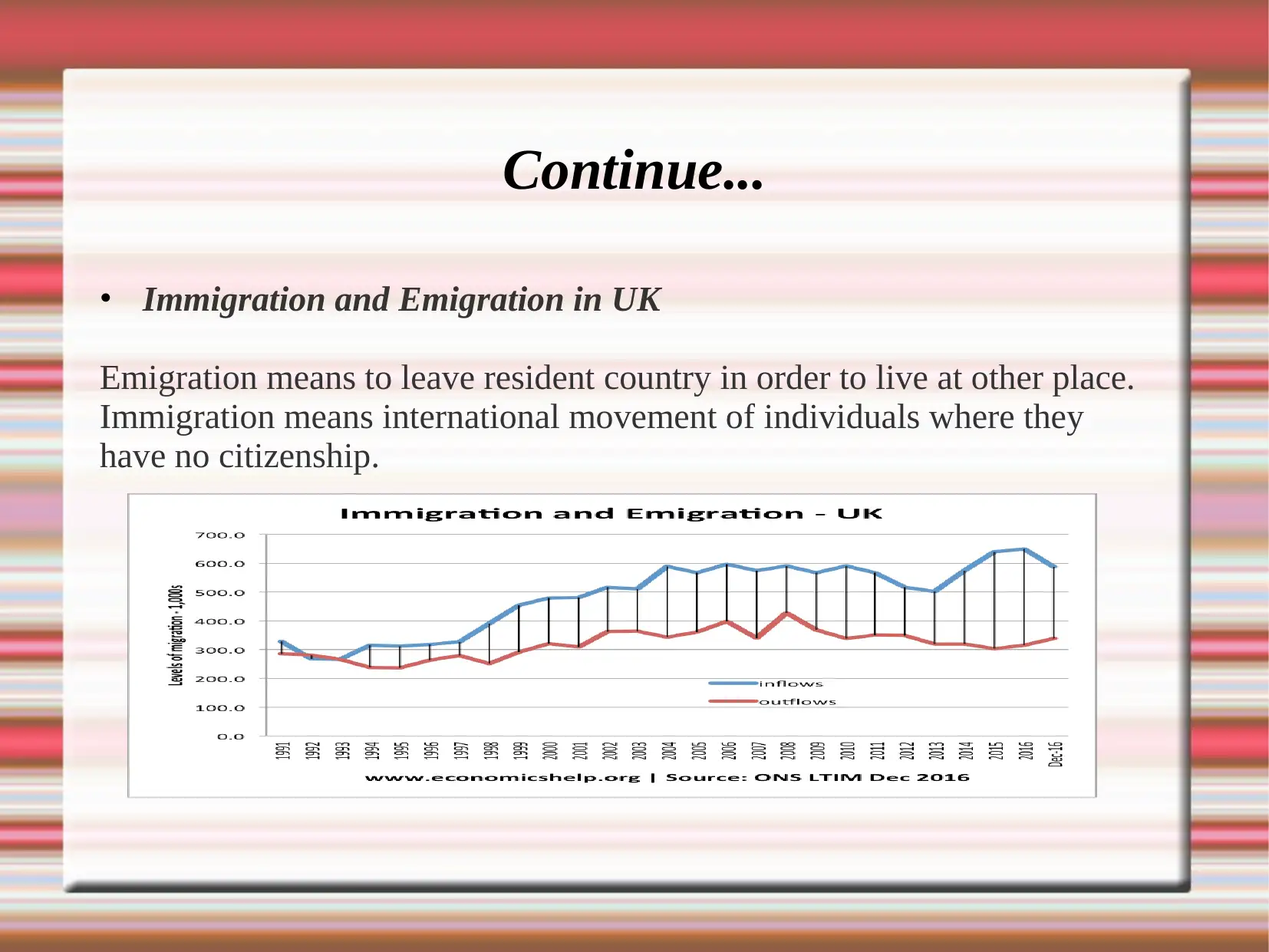
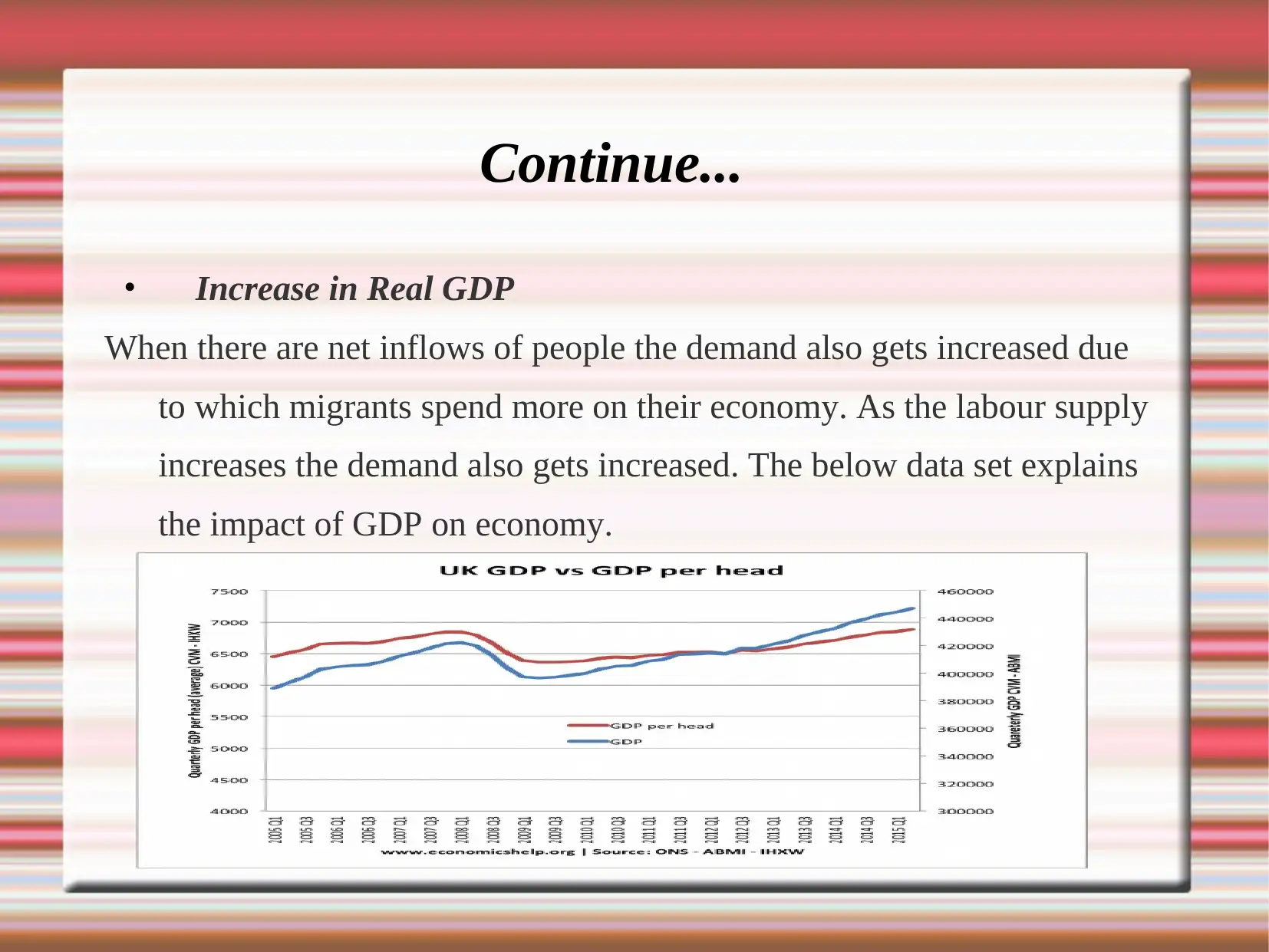
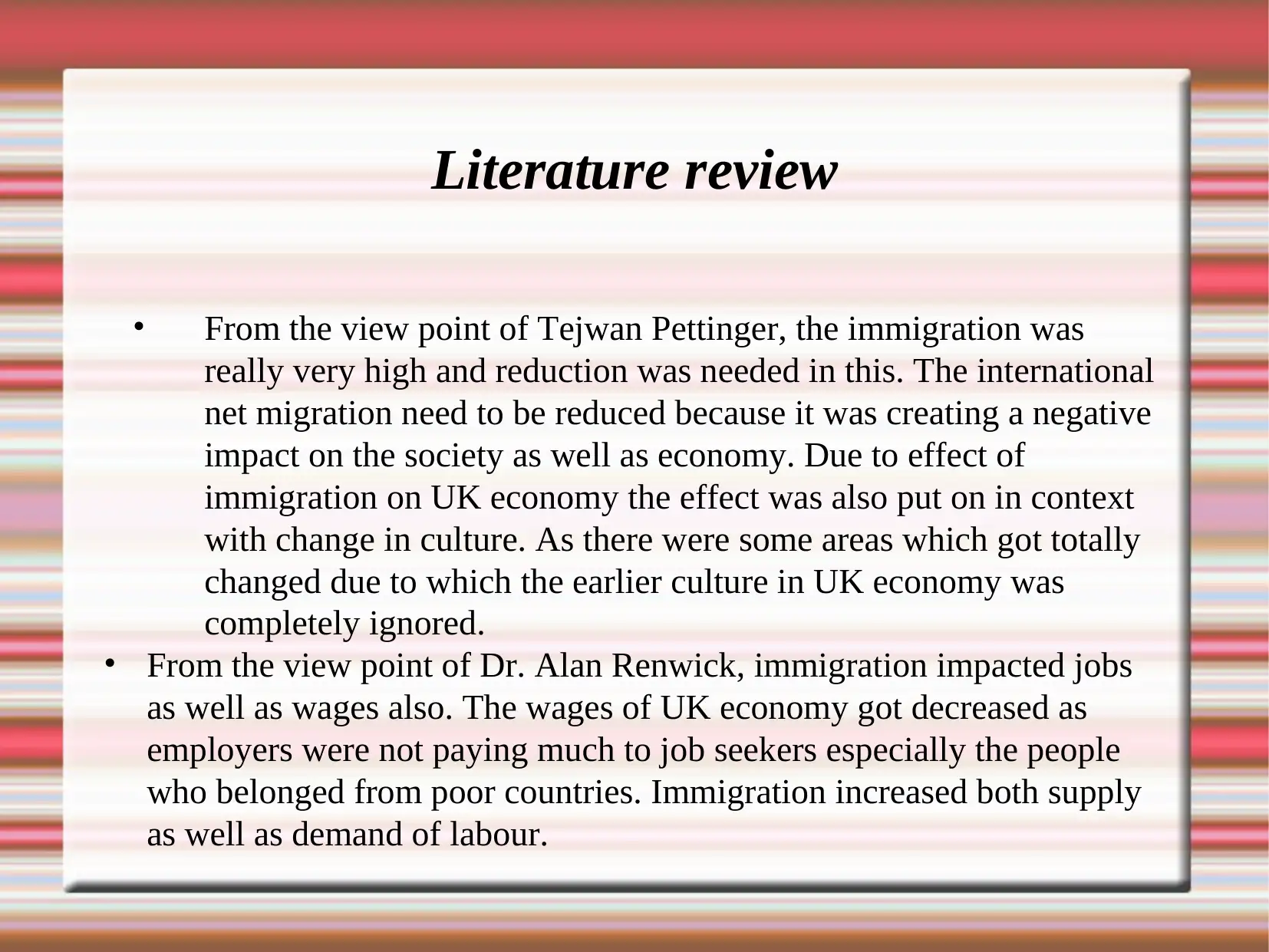
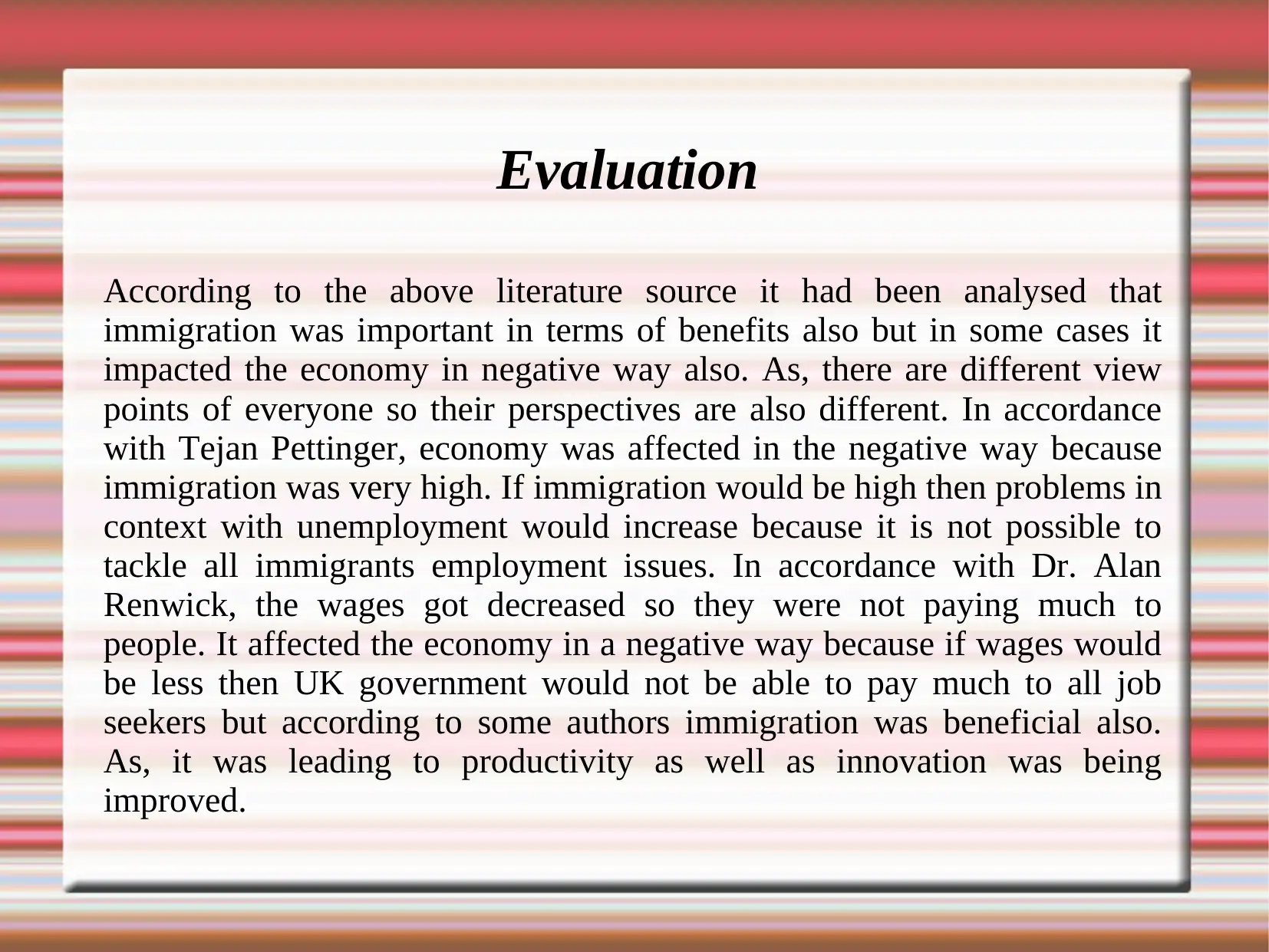
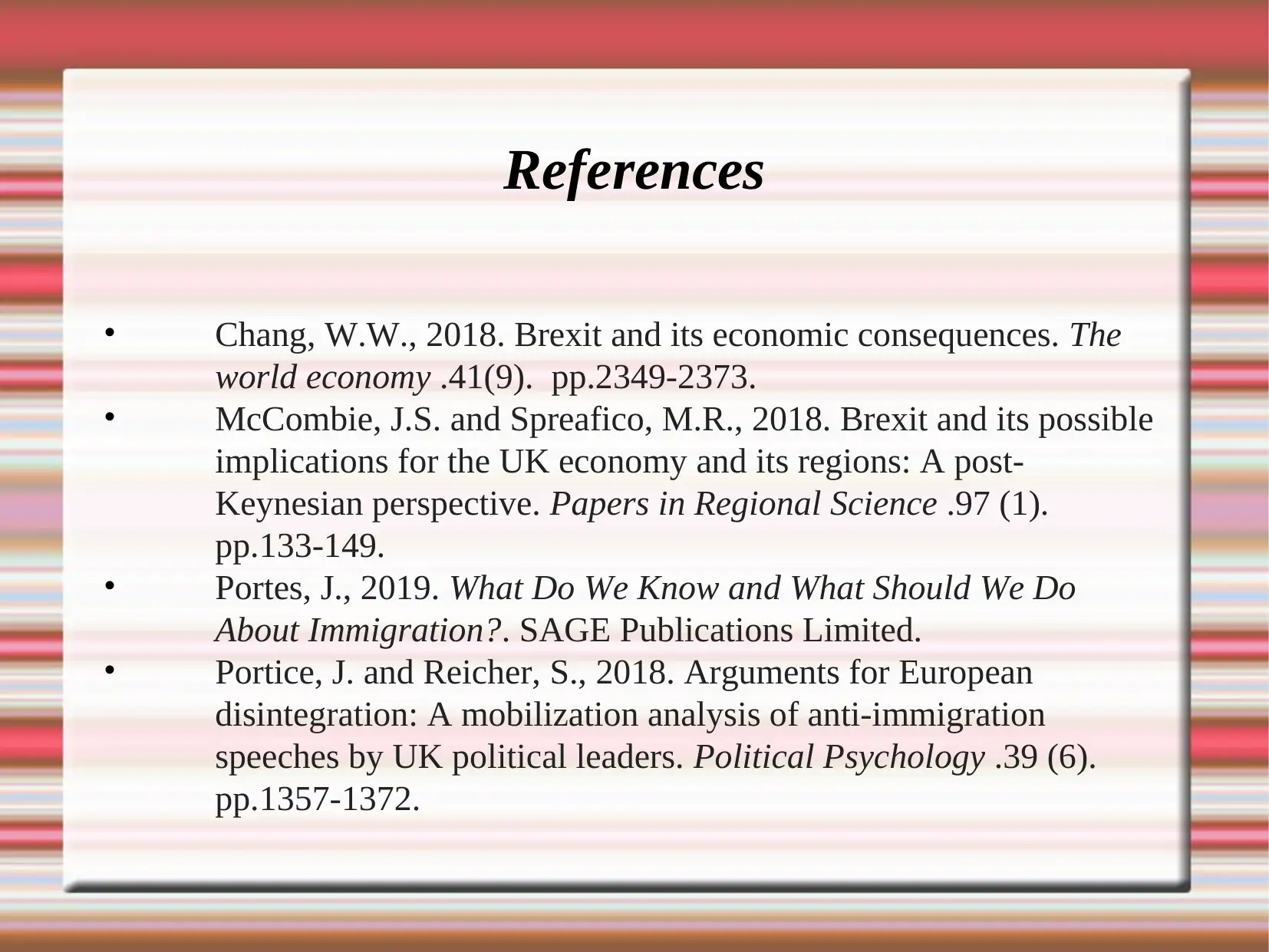







![[object Object]](/_next/static/media/star-bottom.7253800d.svg)